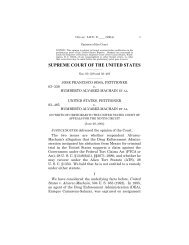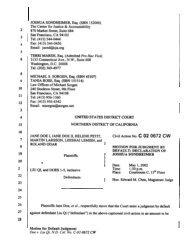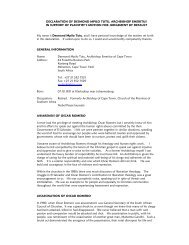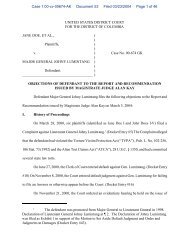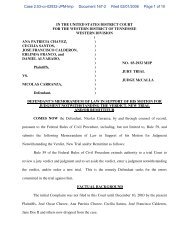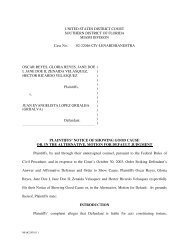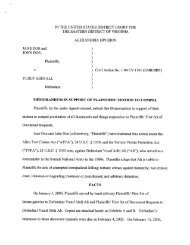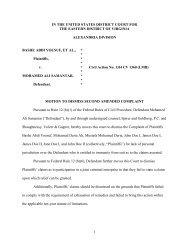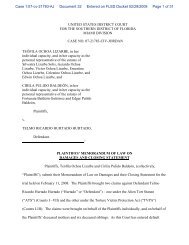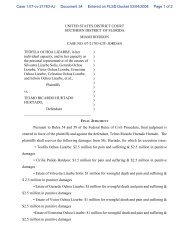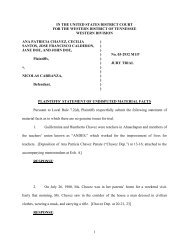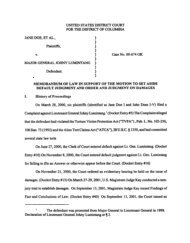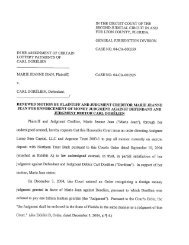Petitioner, v. Respondents. - Center for Justice and Accountability
Petitioner, v. Respondents. - Center for Justice and Accountability
Petitioner, v. Respondents. - Center for Justice and Accountability
You also want an ePaper? Increase the reach of your titles
YUMPU automatically turns print PDFs into web optimized ePapers that Google loves.
3this Court will clarify the law at the earliest possible time,just as this Court did in Ex parte Quirin, 317 U.S. 1, 19 (1942).The statutory text is decisive. Congress provided thatprovisions of the DTA conferring on the D.C. Circuitjurisdiction over challenges to CSRT <strong>and</strong> commissionjudgments applied to pending cases. But Congress conspicuouslydid not so provide with respect to the provision onwhich the Motion rests: Section 1005(e)(1), which purportsto withdraw habeas jurisdiction. The necessary inference isthat Congress did not intend to take the extraordinary stepof stripping the federal courts—<strong>and</strong> this Court inparticular—of jurisdiction over seminal pending cases. SeeLindh v. Murphy, 521 U.S. 320 (1997).The drafting <strong>and</strong> legislative history confirm what thestatutory text already makes plain. Congress specificallyrevised the Act to exclude section 1005(e)(1) fromapplication to pending cases. The author of the amendedprovision explained the purpose of the change on the floorof the Senate at the time. Many members made clear thatthey supported the legislation only in light of this change.The contrary authorities cited by the Solicitor General areinapposite. The decisions in which this Court has presumedthat jurisdiction-stripping provisions apply to pending cases,such as Bruner v. United States, 343 U.S. 112 (1952), areproperly distinguished on two grounds. First, the statutes inthose cases did not provide any indication that Congressintended the courts to retain their jurisdiction over pendingsuits. Second, those statutes merely shifted jurisdiction fromone federal <strong>for</strong>um to another, rather than interfering withthe vindication of previously conferred rights. The text <strong>and</strong>history of the DTA, by contrast, demonstrate that Congressdid not intend to strip the federal courts of their power toadjudicate pending cases. On the government’s reading, theDTA would <strong>for</strong>ever prohibit Guantanamo Bay detaineesfrom vindicating their challenges to the President’sauthority to subject them to the commissions he hasunilaterally established. Moreover, what the governmentneglects to note is this Court’s repeated insistence upon aclear statement by Congress be<strong>for</strong>e a statute like the DTAcan have the effect advanced by the government. There<strong>for</strong>e,




